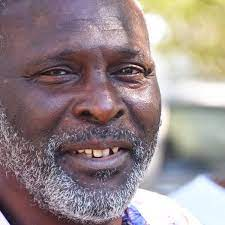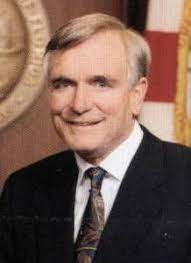Politics aside, it’s a cold-hearted person who isn’t outraged by the gross injustices that occur all too often in this country’s justice system. In fact, a more appropriate term might be the injustice system. And, more than any other segment of the population, blacks constitute its victims.

The latest example is a case from Titusville, Florida, just west of the Kennedy Space Center on the state’s east coast. It’s the capital of Brevard County.
One can’t say for certain that Crosley Green is innocent in the 1989 murder of Charles “Chip” Flynn after the vehicle Flynn and ex-girlfriend Kim Hallock occupied supposedly was carjacked. But it sure looks like he is.
Wrongful convictions are endemic in the United States, and the problem is compounded by resistance by the court system to rectify them. Such unjust treatment accorded some unlucky individuals is the subject of my two latest novels, Blood on Their Hands and Murder in Palm Beach: The Homicide That Never Died. The inciting incident in Blood, in which a black immigrant is brutally beaten by cops, derived from a real, though less serious, occurrence related to me by the victim. Murder is closely based on the actual 1976 murder of a prominent Palm Beach man and the false conviction of a karate expert, who was framed by the Palm Beach County State Attorney’s office and spent 15 years in prison before his release. (Amazon — https://tinyurl.com/9umh7xjs, http://tinyurl.com/jnsrm2e; www.bobbrinkwriter.net)

Awareness of these cases enhances my predilection to take the protestations of certain convicted felons seriously, and to believe that the courts can be overwhelmingly unjust and callous. Such is the situation with Crosley Green, who has spent 30-plus years in prison despite the belief by many, including some in law enforcement, that he is innocent.
In 2018, Florida Today newspaper reported this week, a lower court overturned his conviction because prosecutors never shared notes they made of remarks by first responders that they believed Green was innocent. The two Brevard County Sheriff’s Office deputies even said they believed Kim Hallock was the shooter. And a friend of Charles Flynn, who originally said he thought Green was guilty, later reversed his opinion, as did other witnesses, who said the state had coerced them.

Flynn, who was 22, was visiting Hallock, who, according to Wikipedia, was “hurt by the split.” Flynn was involved in a relationship with someone else. She provided law enforcement with a recounting of the murder that was full of holes. For example, she said Green stole the pickup truck, but he didn’t know how to drive a stick-shift truck. His fingerprints were found nowhere. In fact, there was no physical evidence connecting him to the crime.
Nonetheless, the 11th Circuit Court of Appeals overturned the lower court’s ruling, acknowledging that the information provided by the two officers should have been turned over to the defense, but holding that it was not material to the case. An all-white jury had convicted Green.

Green’s attorneys petitioned the U.S. Supreme Court, which declined to consider the case. Attorney Keith J. Harrison said there was “still time for the state to do the right thing” and parole Green or grant him clemency.
My thoughts: Good luck with that. Gov. Ron DeSantis is so biased against criminals that he had 20 ex-felons charged with voter fraud, even though they had received approval from the state to vote. There was a good reason for DeSantis’ action: Ex-felons tend to vote Democratic.
What has happened to Green is similar to the fate of Mark Herman, whose conviction was challenged over the years by several attorneys working pro bono, convinced he was innocent. The courts turned down 25 appeals before one appeals lawyer, told by her boss to read the file overnight and return with a denial of the appeal – yes, that happened – decided Herman was not guilty, and refused to issue a denial. She argued his innocence before a fair-minded, compassionate governor, Lawton Chiles, and the Florida Cabinet, which granted Herman clemency, holding that the killer remained unknown but no evidence pointed to Herman.

My thoughts: With no reason to believe Herman was guilty, true justice demanded that he be pardoned. And what about the assistant state attorney who framed him? He has in no way been held accountable, as the appeals attorney, Sharon Stedman, demanded. The children of the victim in that case have been convinced by one of their siblings that Herman is innocent, and think they know who the killer was. My book paints a different scenario, and we are collaborating in efforts to isolate the real killer. But that is a huge challenge, considering that law enforcement, which put the wrong man away, would have to admit their mistake and reopen the investigation. That doesn’t happen in our country’s system of justice.

So Green, after a brief release from prison pending the outcome of court appeals, is back in prison at age 65, staring at the prospect of spending the rest of his life behind bars. Before his conviction, he’d done a prison stint for minor drug dealing. “I came to believe in Jesus in prison,” he said after learning of the court’s denial. “I believe he is with me now—and not only me, but my family …”
He has committed no offenses during his three decades of incarceration. But consideration for parole hinges on his admission of guilt, which he has vowed never to do.
Meanwhile, justice system officials who occupy the other side of the coin from convicted criminals smugly remain free.
